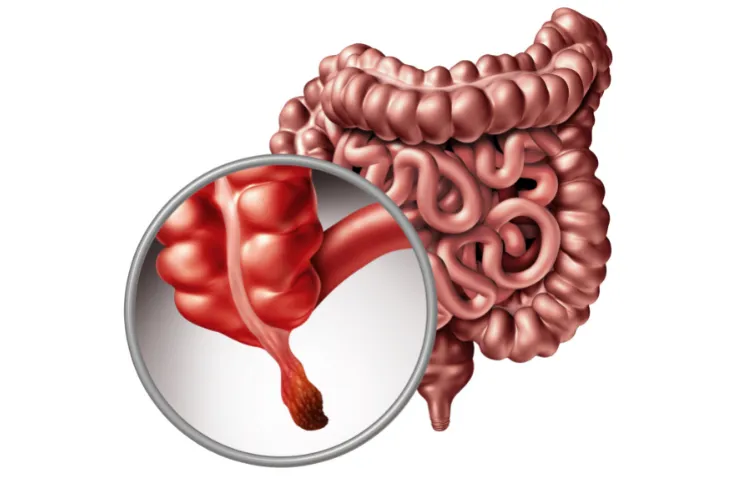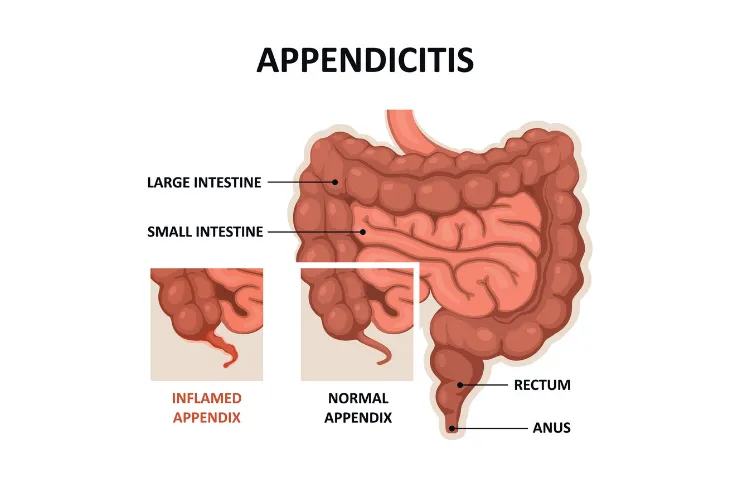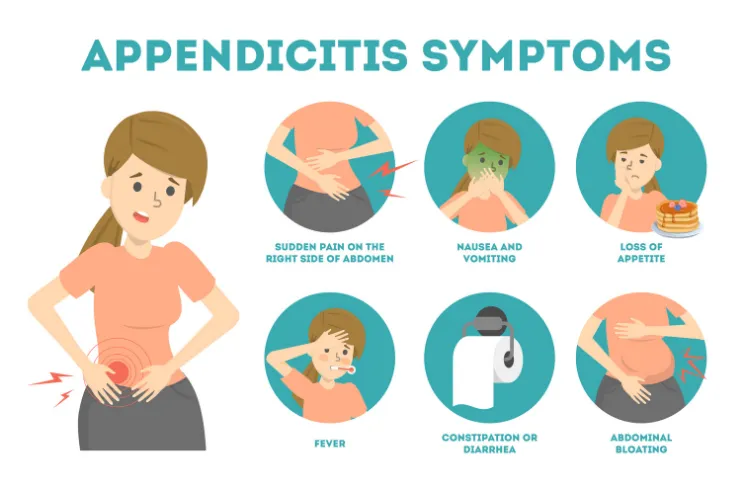You may be familiar with at least the term appendicitis. If you haven’t been affected by the condition yourself, perhaps you know a friend, classmate, or coworker who stared appendicitis in its proverbial face and has since recovered.
Most of us rarely if ever dwell on the symptoms, causes, and treatment options of appendicitis until those symptoms rudely interrupt our daily lives. And that’s before we even mention the condition’s lesser-known brother chronic appendicitis.
Though cases are rare, the symptoms of chronic appendicitis are often overlooked and left untreated. You can’t seek help until you know that something is wrong. So, with that in mind, we’re going to take a closer look at exactly what you need to know about chronic appendicitis.
What Is an Appendix?
Your appendix is a thin tube connected to the end of the large intestine and it plays a critical role in your immune system when you are a child. There is still much debate surrounding the actual function of the human appendix. Scientists are still discovering new traits, and positing new theories that the appendix in fact houses beneficial intestinal bacteria.
Whatever its purpose, your appendix is prone to infection and inflammation, and can even burst should those symptoms be ignored.
What Is Appendicitis?
Affecting nearly 9-percent of Americans, appendicitis can happen at any age and seemingly without notice. It happens when your appendix becomes inflamed and is often caused by blockages in either the appendix itself or the intestine. Bacteria, parasites, tumors, and viruses can also lead to instances of appendicitis.
Acute vs. Chronic Appendicitis
Much of the conversation surrounding appendicitis actually focuses on one of two distinct types. Acute appendicitis is far and away from the most common of the two. Often appearing suddenly and worsening rapidly, acute appendicitis requires immediate medical attention and can be quite severe. 7 to 9-percent of all Americans experience acute appendicitis in their lifetime.
When compared to acute appendicitis, chronic appendicitis is considered quite rare, affecting only 1.5-percent of all people who have already experienced acute appendicitis. Chronic appendicitis can be incredibly difficult to diagnose, as the symptoms are often much milder and can sometimes disappear entirely, before returning once again.
Is Chronic Appendicitis Serious?
Chronic appendicitis only ever occurs in people who have experienced acute appendicitis before and leads to long-lasting inflammation and in some cases, it can be fatal. So yes, it is a serious condition.
If left untreated, the milder symptoms of chronic appendicitis can lead to the much more severe symptoms of acute appendicitis and may even require surgical intervention.
Symptoms of Chronic Appendicitis
Chronic appendicitis does share a number of the very same symptoms of acute appendicitis, though there are a few distinctions. Chronic symptoms can last for a long time, and seemingly come and go over the course of months and even years. Whereas symptoms of acute appendicitis develop quickly, severely, and typically only last between 24 and 48-hours.
The most commonly reported symptom of chronic appendicitis is persistent abdominal pain, but there are other symptoms too. Patients report nausea, low-grade fever, vomiting, loss of appetite, abdominal swelling, inability to pass gas, and more.
What Causes Chronic Appendicitis?
Pinpointing the precise cause of appendicitis, acute or chronic, is always difficult. Though many medical experts have their theories, the truth is that there is still so much unknown.
Potential sources for the development of acute or chronic appendicitis include a buildup of hardened stool, intestinal worms, traumatic injuries, tumors, and enlarged lymphoid follicles.
Risk Factors
It is true that appendicitis can affect anyone of any race, background, and health level. Having said that, some may be more likely to develop it.
Appendicitis affects people in their 20s as well as teens more frequently. Those with a family history of appendicitis are also at increased risk of developing it, as are males.
Diagnosis
If you suspect that you may be experiencing the symptoms of chronic appendicitis, it’s important that you get yourself in to see a doctor as soon as possible. Seeking care for chronic appendicitis may not be as urgent as it’s acute counterpart but still, prolonged and untreated symptoms can cause serious complications.
Your doctor does indeed have a number of useful, chronic appendicitis diagnosing tools at their disposal. Blood tests, pelvic exams, pregnancy tests, urinalysis, CT scans, abdominal ultrasounds, and MRIs can all be leaned on to provide an accurate diagnosis. Which of the many tests your doctor opts to use is generally a matter of your medical history and their discretion.
Treatment Options
Chronic appendicitis can be treated in a few different ways, some of which are more invasive than others. The least invasive approach to dealing with appendicitis, chronic or otherwise, is prescription antibiotics. Mild cases can improve with the use of antibiotics alone, but most cases require a more surgical approach.
Surgical intervention options range from using a needle to drain the abscess to removing the appendix entirely. Appendectomies are standard procedures and involve the complete removal of a patient’s appendix as well as a complete cleaning of the abdominal cavity.
Though there are indeed risks involved in appendectomies, living with untreated appendicitis is much, much more dangerous.
Complications
Part of the danger of chronic appendicitis is its relatively mild symptoms. Mild symptoms don’t always inspire busy people to seek treatment, but leaving it undiagnosed and untreated will without question worsen the patient’s health.
When left to run its course, chronic appendicitis can lead to acute appendicitis, a ruptured appendix, an abscess, sepsis, and even peritonitis, all of which are incredibly damaging to the body and require immediate medical assistance.
When to See a Doctor
Ignoring new or long-lasting symptoms of any kind is never a good idea. Unexplainable pain and discomfort is your body notifying your brain that something is wrong. Pay attention to those signs and always seek medical care as soon as they crop up.
Chronic appendicitis is a perfect example of seemingly not-so-serious symptoms warning you of something much more sinister. You may be able to take the symptoms in stride in the short term, but leaving chronic appendicitis undiagnosed and untreated will not end well. The symptoms won’t just go away for good without treatment. If anything, they’ll undoubtedly get much worse.
So, when should you see a doctor? As soon as you can possibly manage.
The Takeaway
Maintaining an ongoing relationship with your primary physician is the key to good health and longevity. Chronic appendicitis serves as a perfect example as to why. Though the symptoms of this curious condition appear mild at first, they tend to worsen over time, and suddenly.
Thankfully doctors have been treating acute and chronic appendicitis for a very long time. Treatment is safe and readily available to anyone that needs it. If you’ve read over the above symptoms and suspect that you may be dealing with a case of chronic appendicitis, do your body a favor and get checked out right away.















